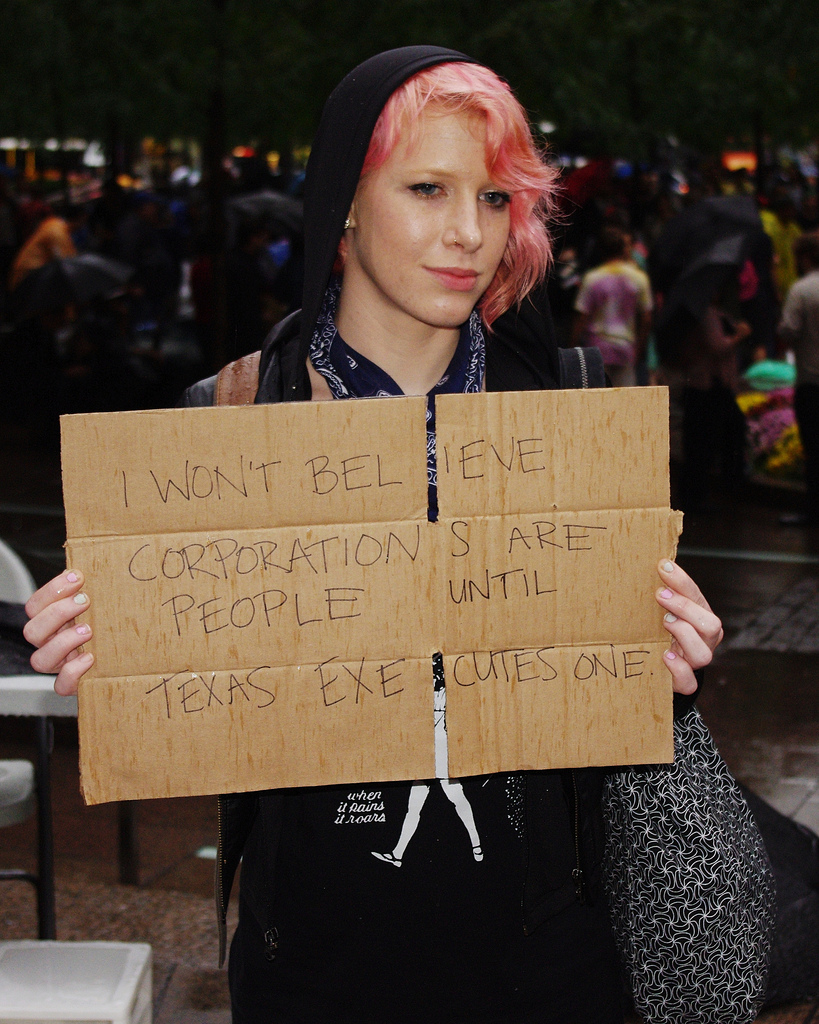
Late last week, after a long fought state court battle and a rejected hearing by the US Supreme Court, a very bad man was executed in Texas. And make no mistake about it, he was very bad. Tommy Lynn Sells was a carnival-working serial killer who claimed to have murdered at least 70 people across the country, though he’s been officially tied to a number closer to 20. Many of these victims were children molested then slaughtered in gruesome ways, some while sleeping. There was at least one pregnant victim.
In 2012, 750 people were sickened and 64 killed in a fungal meningitis outbreak, counting at least one child as a victim. The deaths were painful. Many of the survivors were left with severe pain, weakness, and nerve damage. Still taking severe anti-fungal medication over a year later, many may never fully recover. The culprit? Medicine produced by a compounding pharmacy in Massachusetts that was later found to be bucking regulations in a facility with “greenish-yellow residue on sterilization equipment, surfaces coated with levels of mold and bacteria that exceeded the company’s own environmental limits, and an air-conditioner that was shut off nightly despite the importance of controlling temperature and humidity.”
As of today, no criminal charges have been brought against the pharmacy dba New England Compounding Center, though they have settled at least one $100 million dollar lawsuit with victims and their lawyers.

Compounding pharmacies are facilities that customize pharmaceuticals. For example, you may need a medication but are allergic to one of the inactive ingredients. Or maybe you require a dosage not manufactured by the big pharmaceutical companies. A compounding facility could reformulate that medication in order to make it effective and safe for you. The very definition of designer drugs. Additionally, though, they’ve become production facilities, or “outsourcing facilities,” for mass quantities of drugs that should require federal oversight. You see, because these facilities are considered “pharmacies,” they are only subject to the same state-level regulation that regular old grocery store pharmacies are. Which means, in fact, hardly regulated at all. The Pew Charitable Trusts performed a study with shocking results: Since 2001, compounding pharmacies’ product has been directly responsible for “1,084 adverse events, including 87 deaths.”
In 2013, under tremendous pressure from human rights activists, Lundbeck, the Danish drug maker that produces Pentobarbital–the barbiturate used to kill most inmates in this country–made a decision not to distribute the chemical for use in executions anywhere in the world. Even its US-based distributors couldn’t sell it if its intended purpose was the death of a human being. That put Texas in a bad position, being that it is responsible for 40% of our nation’s executions, killing more people than 97% of countries in the world do. How would it death-penalize people now? Criminals are basically waiting in line! The Lone Star State stopped hanging people in the 1920’s and quit the electric chair in the 1960’s. What were they to do now? They began looking at compounding pharmacies.
And that worked for a while. Until the Houston compounding pharmacy they were using caved to the very same pressure that Lundbeck did–along with alleged but unsubstantiated threats of violence–and refused to sell Texas any more kill juice. Yet somehow, Texas has managed to get their hands on more Pentobarbital; and now they refuse to say from whom they acquired it. They refuse to let anybody look at it. They refuse to let it be tested by outside sources. And they have started killing with it.

Which brings us back to that very bad man, Tommy Lynn Sells. You see, his lawyers think that their client should have had the right to know exactly what it was that was going to be used to kill him. They believe that the Eighth Amendment to the United States Constitution, which strictly forbids cruel and unusual punishment, should have come into play here. His lawyers pled their case to the Supreme Court, but the highest court in the land–the one that is there to ensure our government abides by our Constitution–refused to hear the case. And Tommy Lynn Sells–convicted serial killer–died yesterday by lethal injection of drug unknown. To everybody but Texas officials.
I know that many won’t see a problem with this. They probably believe that Sells deserved the most painful death possible. It’s an understandable and very human response. The thing is, the writers of our Constitution did not believe that a killer deserved the most painful death possible. In Hope v. Pelzer, the Supreme Court ruled that “unnecessary and wanton infliction of pain constitutes cruel and unusual punishment.” Therefore, while capital punishment is legal in the United States, the unnecessary infliction of pain is illegal, regardless of how evil the man sentenced to die is; despite the horrible things he has done. That is law and order. That is the fabled American Way.
Now, by all appearances, Sells did not actually die a painful death. Once injected with the mystery drug, he closed his eyes and began to snore. The father of the 13 year old victim for whose death Sells was convicted and who witnessed the execution said, “Basically, the dude just took a nap.” The thing is, the science on that is controversial. Because of the paralyzing qualities of the chemical cocktail used to execute criminals, we have no idea what they’re actually feeling when they are made unconscious. The fact a dying man is snoring does not mean he’s not in horrible pain.
It’s becoming increasingly obvious that there is flagrant disparity in the way we treat companies that kill people and the way we pursue prosecution of actual human murderers. This seems at odds with the current effort to cloak our corporations in the armor of personhood (more on that in a later post). But we’ve come to expect that. What is slightly more surprising is that our Supreme Court would refuse to hear a case in which a United States citizen was to be injected with a chemical that, at best, was procured from a business with the reputation of harming thousands of people, and, at worst, procured from some clandestine meth lab in Mexico.
We don’t know. Texas won’t tell us. And nobody’s making them.
-Alibi Pierce




Leave a Reply